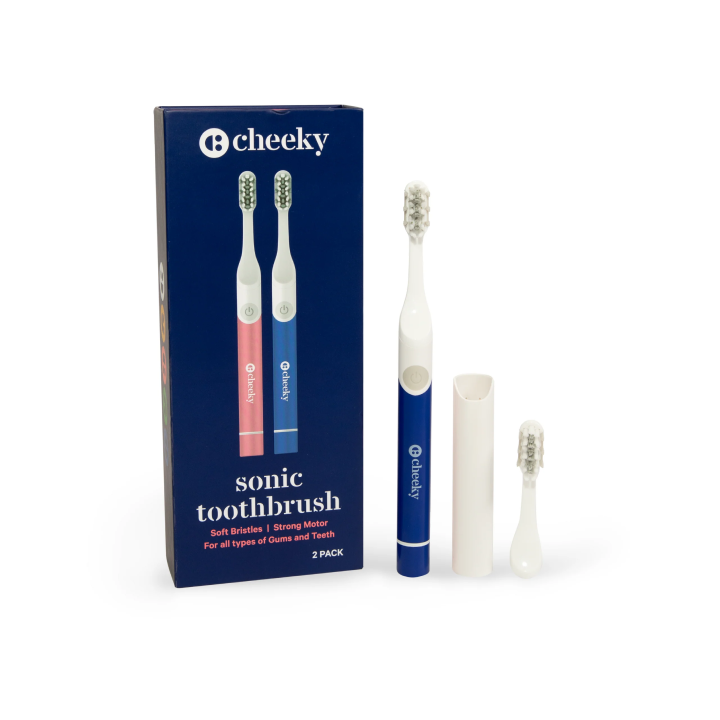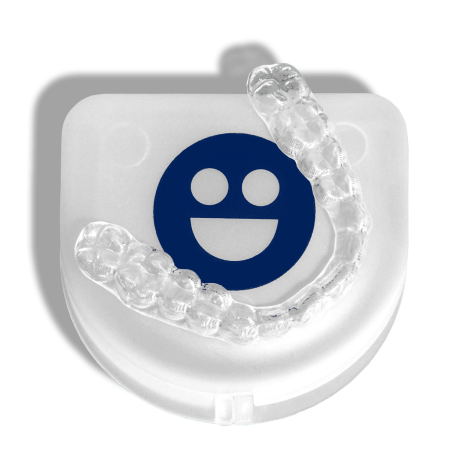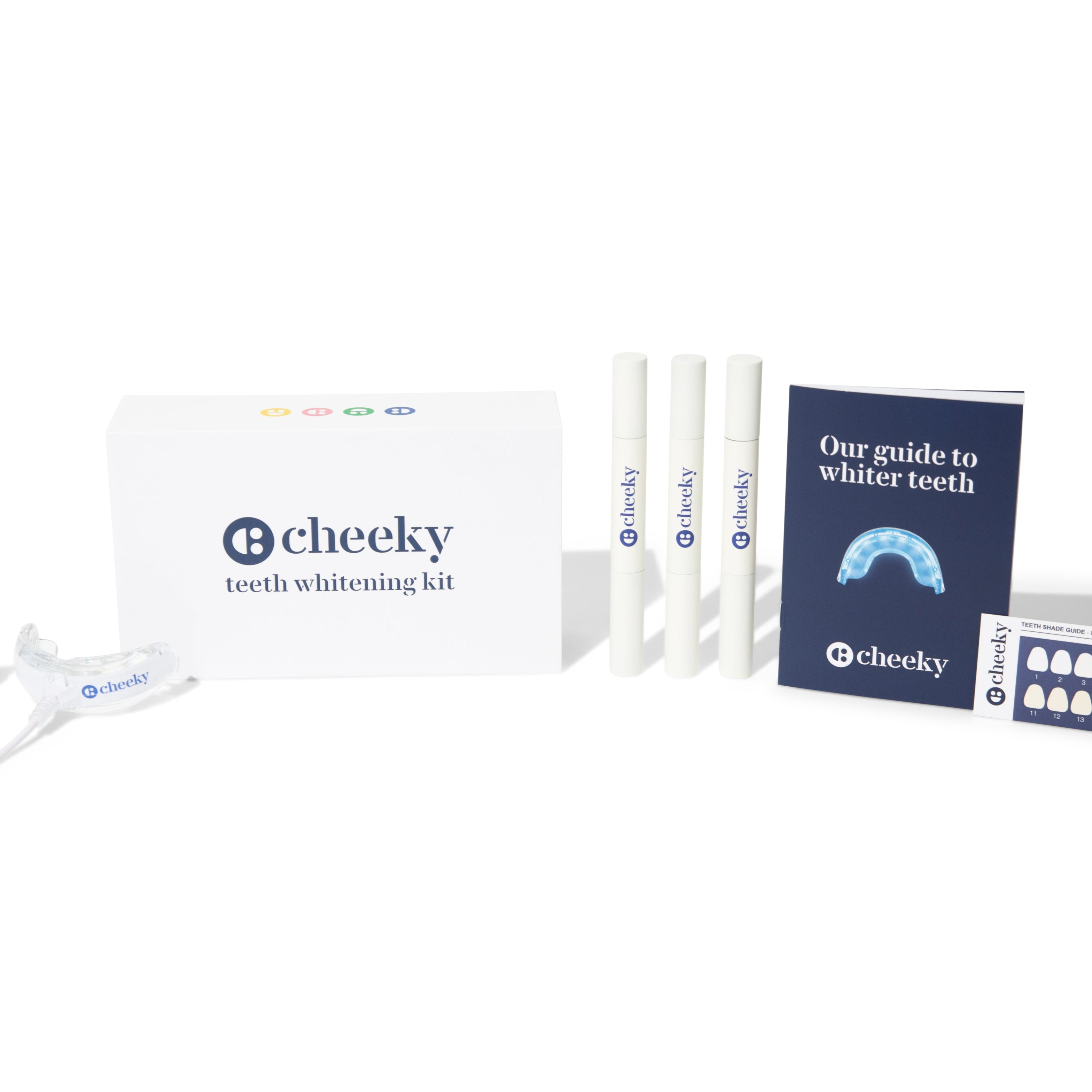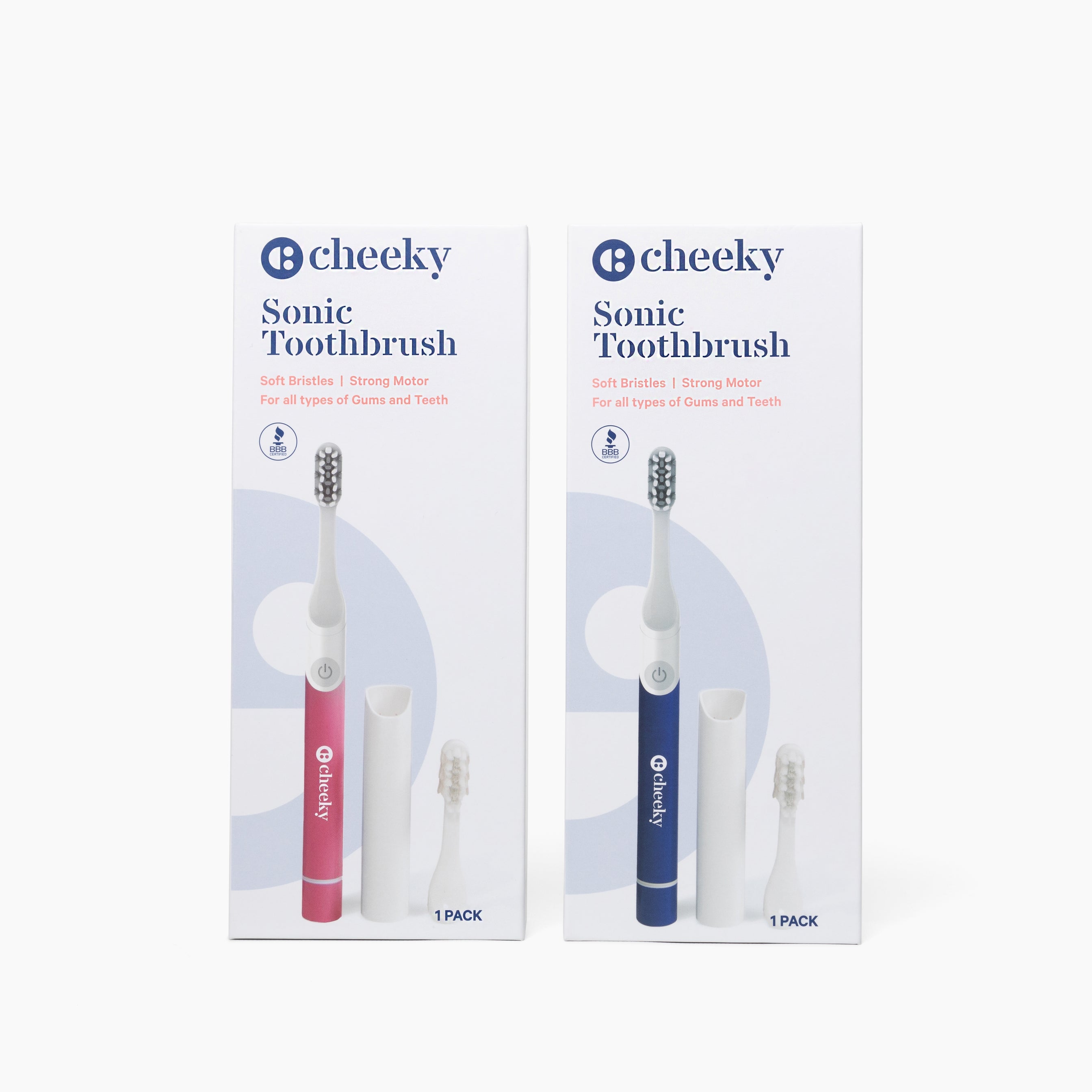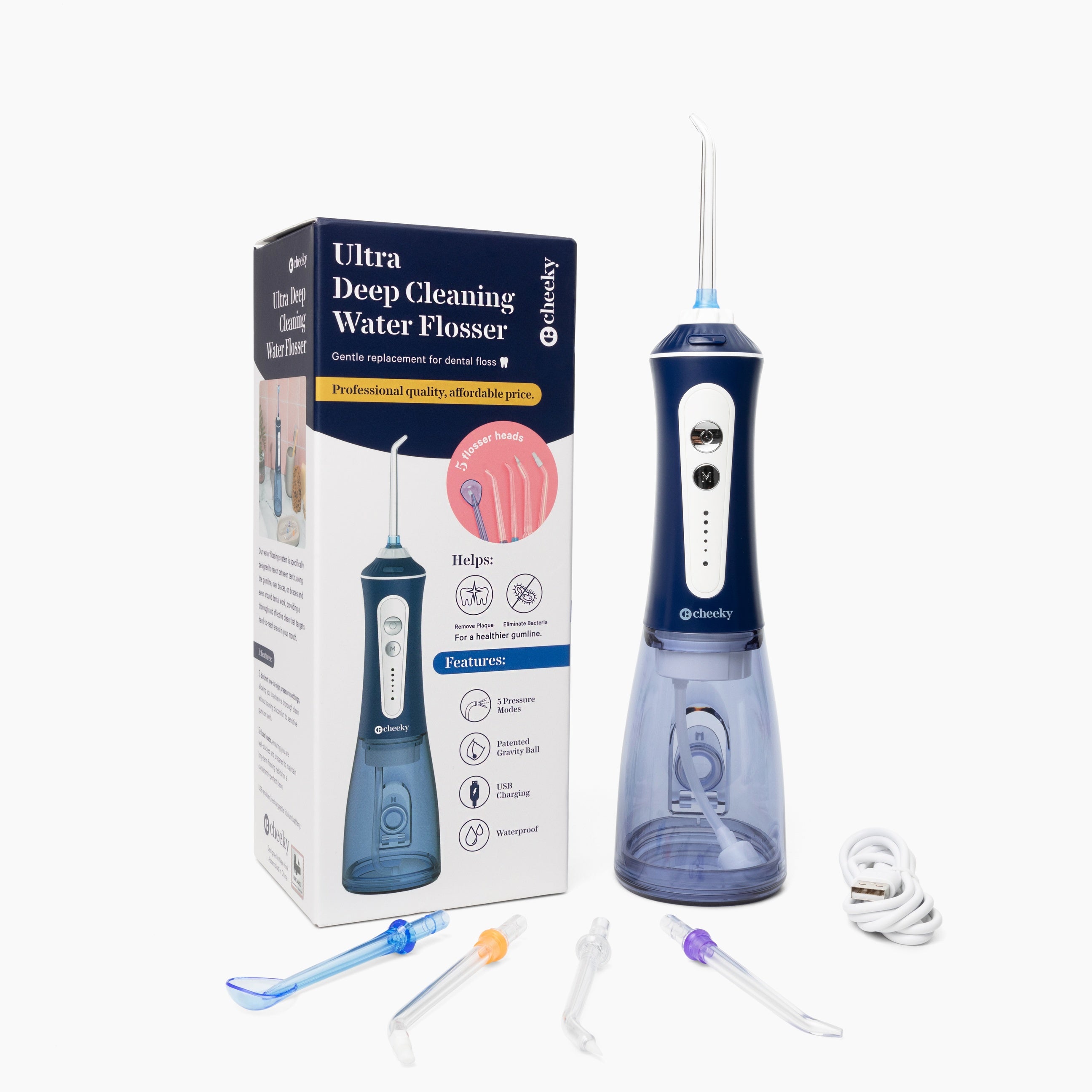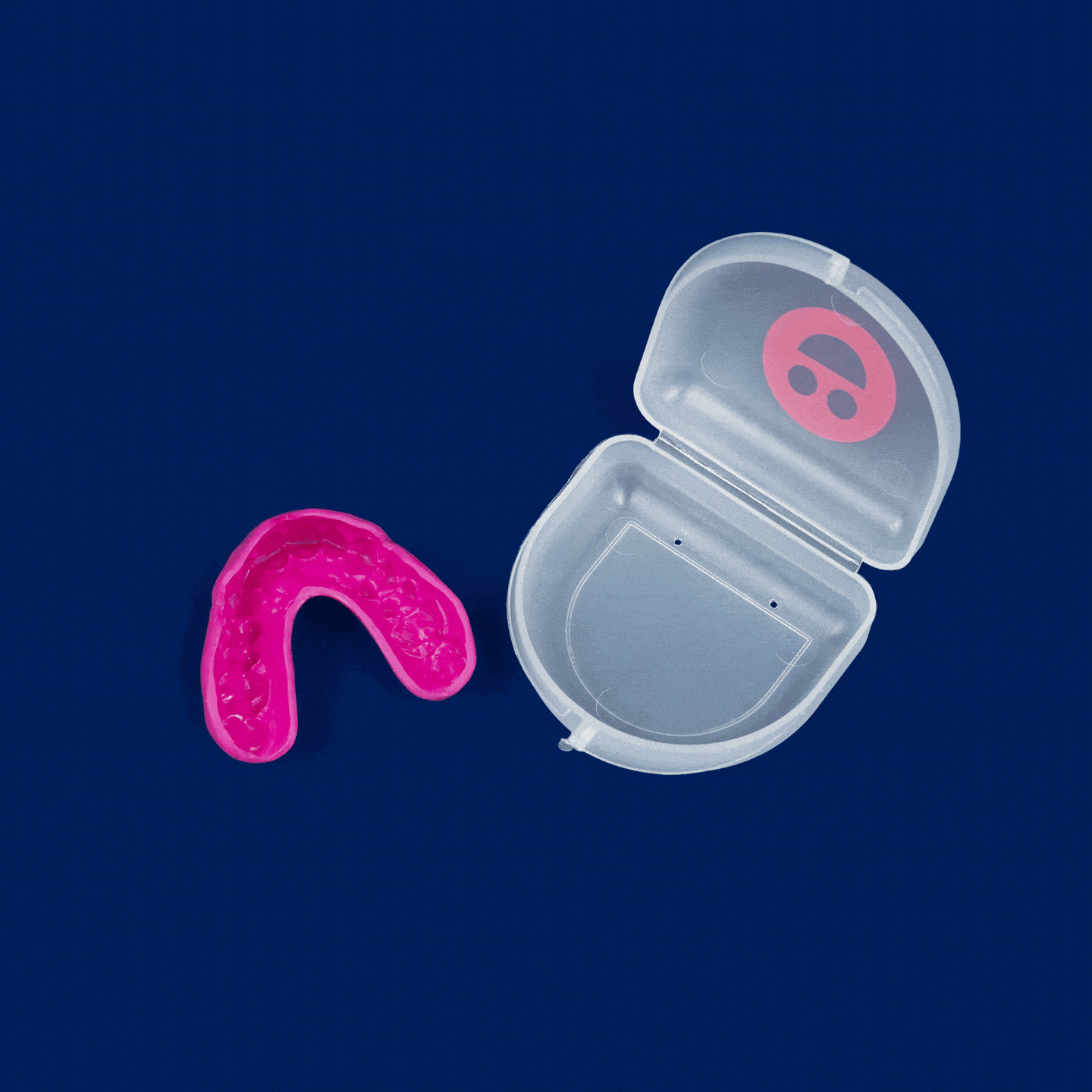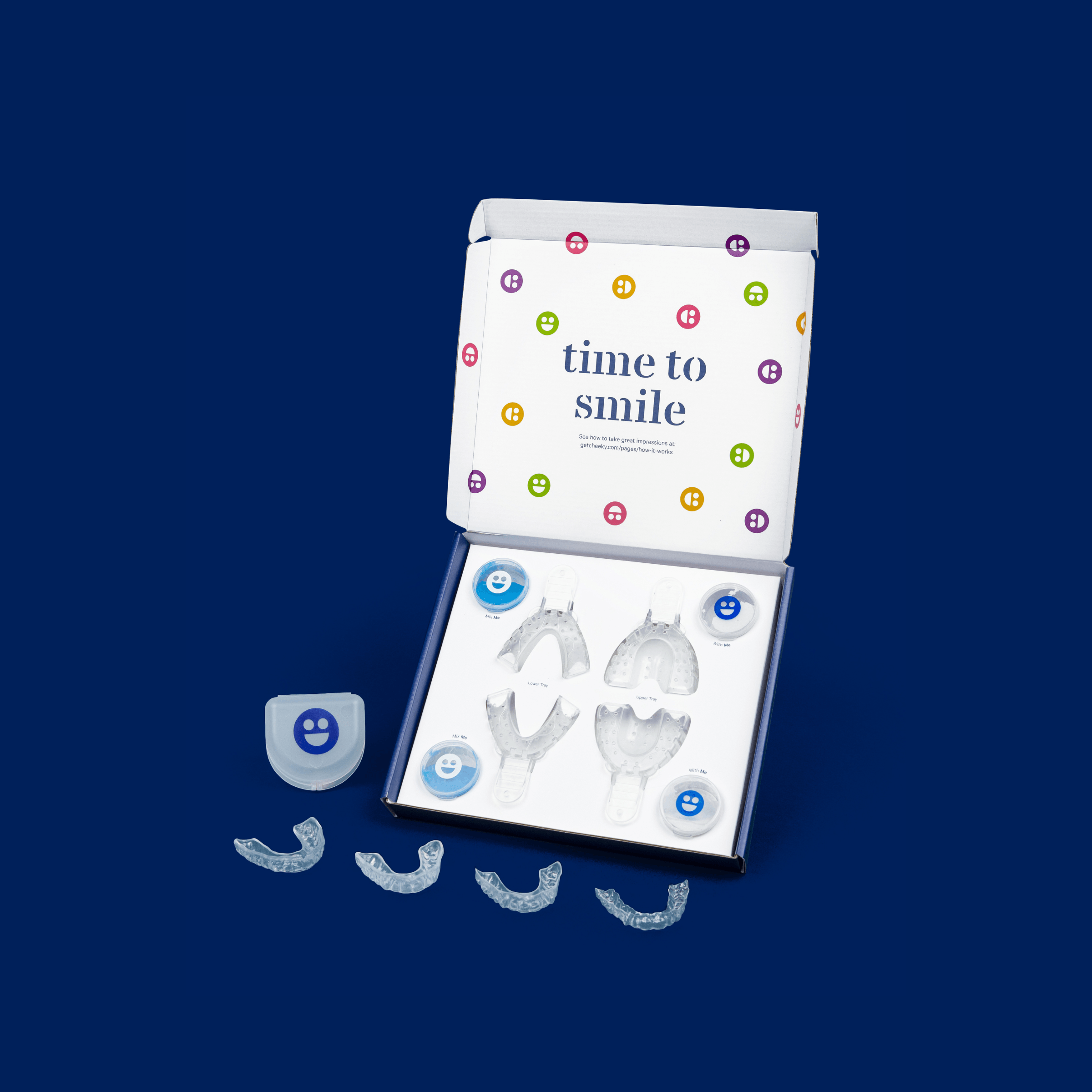Does a Mouth Guard Help with Snoring? How Anti-Snoring Dental Appliances Can Improve Your Sleep

Snoring disrupts sleep quality for many people (and their partners), leading to daytime sleepiness, irritability, fatigue, and low productivity. While it's normally perceived as a slight problem, snoring can also signify the presence of underlying sleep disorders, such as sleep apnea. That’s why you should investigate the root causes and address them to improve your sleeping quality and overall health.
One of the best solutions that can help you stop snoring is oral appliances, such as mouth guards. In this guide, we’ll explore whether anti-snoring devices, such as mouth guards and mandibular advancement devices (MADs), can help you sleep better by addressing the root causes of snoring.

Understanding Snoring and Its Causes
Snoring occurs when the airflow through the nose and mouth gets blocked. This causes vibrations in the soft tissues in the throat and tongue, which are normally relaxed during sleep.
Most people snore occasionally, often due to their sleeping positions. However, frequent snoring may indicate serious health issues, such as heart disease or sleep apnea. Other signs, such as daytime sleepiness or a large neck circumference, are also signs of troublesome snoring and other related conditions.
What Causes Snoring?
Airway obstruction is the primary cause of snoring. It happens when the airflow through the nose and mouth is blocked or constricted in some way. According to the Charleston Center for Cosmetic and Restorative Dentistry, the following are some of the most common causes of snoring:
-
Extra Tissue in the Airway: Excess tissue in the throat or the tongue closes the airway, especially when muscles relax during sleep, leading to vibrations that produce that telltale snoring sound.
-
Poor Sleep Position: Sleeping on your back can make snoring worse. Lying flat on your back allows the tongue and soft tissue in the throat to roll backward, blocking the airway and leading to snoring.
-
Obesity and Nasal Issues: Excess fat in the neck region and congestion in the nasal passages, often caused by allergies or sinus infections, can restrict airflow. This leads to breathing through the mouth and snoring.
-
Sleep Apnea: Obstructive sleep apnea (OSA) is a severe sleep disorder characterized by snoring (American Dental Association, 2020). Individuals with sleep apnea usually experience loud snoring and daytime drowsiness, among other signs and symptoms, such as headaches or even high blood pressure.
When is Snoring a Concern?
People with sleep apnea usually experience loud, chronic snoring followed by silent periods when they’re not breathing. If you or your partner experiences choking or snoring sounds during sleep, excessive daytime sleepiness, morning headaches, or unusual breathing during sleep, you should seek medical attention to rule out any underlying conditions.

How Mouth Guards for Snoring Work
Mouth guards, specifically anti-snoring mouthpieces, work by addressing the physical reasons behind airway blockage. You can wear them during sleep to reposition the jaw or tongue, opening up the airway.
This helps prevent sagging of the soft tissues at the back of the throat, which is often the primary reason for snoring.
The most widely used type of mouth guard for snoring is called a mandibular advancement device (MAD). It gradually pushes forward the lower jaw (mandible) and the tongue away from the back of the throat, thus preventing airway blockage. This decreases the frequency of snoring and ensures free airflow during the night.
These oral appliances provide more natural, unobstructed airflow by maintaining the proper alignment of the tongue and jaw. This provides quieter, more peaceful sleep.
Benefits of a Mouth Guard for Snoring
-
Improved Airflow: Mouth guards keep your airway open while you sleep by moving the lower jaw or tongue forward, ensuring better airflow.
-
Reduces Snoring Frequency and Intensity: A mouth guard can help reduce the frequency and loudness of snoring. This can lead to quieter nights and less disruption to both the snorer and their bed partner.
-
Improves Sleep Quality: According to Wee (2011) in the Therapy in Sleep Medicine E-Book, many people report a quieter night and a better night's sleep, with fewer interruptions, by using an anti-snoring mouthguard. This leads to reduced fatigue, irritability, less daytime sleepiness, and better overall health.
Types of Mouth Guards for Snoring
There are various types of mouth guards for snoring, and each has its benefits. Here are some of the most common types of anti-snoring dental appliances and how they can improve the quality of your sleep.
Custom-Made Mouth Guards
Custom-made mouthguards are specifically tailored for your own unique dental structure. Made from impressions of your upper and lower teeth, they’re crafted in a dental lab for a precise and comfortable fit.
The benefits of custom-made mouthguards include:
-
Exact Fit: The main advantage of custom-fitted mouthguards is the precise fit. Since they're made from a model of your teeth, they fit most comfortably and function best.
-
Durable and Long-Lasting: Custom mouthguards made with high-quality materials last longer and are more resistant to teeth grinding.
-
Comfort: A custom-fit mouth guard provides greater comfort, which is valuable for long-term wear while sleeping.
If you're looking for a long-term solution to snoring and teeth grinding, custom-fit mouth guards from Cheeky are a great option. These can reduce snoring and prevent teeth grinding without the discomfort or need for frequent replacements.
Boil and Bite Mouth Guards
These mouth guards are popular due to their ease of use and affordability. They’re made from a thermoplastic compound, which melts and becomes soft when you heat it in hot water. Once soft, you can bite down on the mouth guard and mold it to fit the shape of your teeth and jaw.
Pros:
-
Affordable: Boil-and-bite mouthguards are generally affordable, making them a great choice for those looking for a budget-friendly solution for snoring.
-
Easy to Use: These mouth guards are easy to use in the comfort of your home, and you don't have to visit a dental office or undergo complicated procedures. You just heat, mold, and use.
Cons:
-
Comfort and Durability: These mouth guards aren’t very comfortable, and they wear down faster compared to custom-fitted ones. The mold is also not as precise as a custom fit, which can lead to discomfort or reduced snoring relief.
Anti-Snoring Mouthpieces (Mandibular Advancement Device)
MAD is an anti-snoring mouthpiece used to reposition the lower jaw during sleep. It functions similarly to custom-fitted mouthguards but specifically addresses air passage obstruction caused by relaxation of jaw muscles during sleep.
Features and Benefits:
-
Reduces Snoring Effectively: MADs keep the airway open by advancing the lower jaw, leading to decreased snoring and improved airflow.
-
Comfortable and Adjustable: They come with adjustable settings, which allow you to adjust the extent of jaw repositioning for maximum comfort and functionality.
MADs work specifically to address snoring by repositioning the jaw to create a more open airway. This makes them a better solution for those whose snoring is caused by the position of their jaw and tongue during sleep.

How to Choose the Right Mouth Guard for Snoring
Before buying a custom mouth guard, it's important to see a dentist in case there are pre-existing dental problems, such as misaligned teeth or TMJ conditions.
Key Considerations:
-
Comfort and Fit: Custom-made mouth guards are both comfortable and effective compared to boil-and-bite types.
-
Type of Snoring: Severe snoring can necessitate the use of MADs, but for mild snoring, simple devices like mouthguards can be helpful.
-
Material Quality: Custom mouth guards are more comfortable and durable than over-the-counter options.
-
Budget: While boil-and-bite mouth guards are more affordable, custom-fitted ones offer a better fit for long-term use.
At Cheeky, we meet all these considerations with our custom night guard. We design it to fit snugly and cushion your bite, preventing clenching and teeth grinding that lead to chipped teeth and jaw tension.
Other Anti-Snoring Devices and Interventions
While mouthguards and MADs are effective, some individuals may need additional or advanced treatments depending on the severity and cause of their snoring or sleep disorder. Lifestyle changes, Continuous Positive Airway Pressure (CPAP) machines, nasal strips, and even surgery in severe cases are some of the other well-known anti-snoring devices and methods.
Lifestyle Changes
Certain lifestyle modifications can help reduce snoring and improve the quality of your sleep. For example, losing weight can reduce pressure on the airway, minimizing the likelihood of snoring. Also, changing your sleeping position can help avoid the tongue-forward position that often causes airway obstruction during sleep.
Another significant cause of snoring is drinking alcohol before bed. Alcohol relaxes muscles in the throat and can cause snoring. Limiting alcohol consumption, particularly in the evening, can reduce snoring and improve your ability to breathe freely during the night.
Nasal Devices
If your snoring is caused by nasal congestion, nasal dilators or strips can be used to widen the passages. This allows air to flow more easily through the nose, preventing breathing through the mouth and reducing snoring.
Nasal devices are ideal for individuals whose snoring is caused by nasal conditions or congestion and not by airway obstruction in the throat. They don’t address issues relating to the tongue, jaw, or throat muscles.
CPAP Therapy for Sleep Apnea
CPAP machines provide a steady flow of air to keep an airway open throughout the night. Unlike anti-snoring mouthguards, however, CPAP therapy can be inconvenient, noisy, and uncomfortable for some patients. As such, CPAP therapy is generally reserved for individuals with moderate or severe sleep apnea.
Surgical Options
In the case of severe snoring or obstructive sleep apnea, surgery may help. Uvulopalatopharyngoplasty (UPPP) or gastroplasty can remove excess throat tissue, redefine the airway, and prevent snoring. This approach carries higher risks, costs, and recovery times and should be considered only after trying oral appliances or other solutions without success.
Frequently Asked Questions (FAQ)
Does a Mouth Guard Really Work for Snoring?
Yes, mouth guards can be highly effective in reducing snoring. Specifically, anti-snoring mouthpieces, such as mandibular advancement devices (MADs), reposition the lower jaw and upper teeth to maintain an open airway during sleep. This prevents narrowed airways and reduces snoring caused by throat obstruction. If you want to stop snoring, this treatment option is a non-invasive, cost-effective alternative to surgery or CPAP therapy, especially for mild sleep apnea or snoring solutions.
How Long Should I Wear a Mouth Guard for Snoring?
You should wear your night guard every night while sleeping. Some people see results within a few nights of use, but for continued benefits, it’s best that you wear it consistently. You can experience minimal discomfort in the first few nights as your mouth adjusts, but after a short period, the device should feel comfortable. Wearing your mouth guard every night can maintain the alignment of your upper airway and jaw, ensuring ongoing relief from snoring. If you have concerns, consider consulting a dental professional to determine the best course of action for your specific needs.
Will a Mouth Guard Help with Snoring Caused by Nasal Congestion?
A mouth guard can help with snoring caused by airway obstruction in the throat and mouth, but it will not necessarily address nasal congestion. If your snoring is caused by blocked nasal passages, such as by allergies or sinus problems, a nasal device like nasal strips or nasal dilators will be more effective. But if you breathe through your mouth due to nasal problems, a mandibular advancement device can help by repositioning your lower jaw. This will keep your airway open even if you're breathing through your mouth. If you suspect your snoring is caused by multiple factors, consider using both nasal and oral appliances.
Can I Use a Mouth Guard if I Have Dental Implants?
If you have dental implants, consult a dentist before using a mouth guard. While custom mouth guards can fit your specific dental structure, you'll need specialized devices to avoid putting pressure on the implants or causing temporomandibular joint (TMJ) disorders. A dentist can assess your situation and provide guidance on an appropriate oral appliance or other treatment options. Using an improper mouthguard could lead to discomfort, including jaw pain or possible damage to your implants.
Are There Any Side Effects of Using a Mouth Guard for Snoring?
While mouth guards are safe and effective, some individuals experience side effects while wearing them, especially during the initial adjustment period. The most common side effects are:
-
Jaw Pain: Shifting your lower jaw forward can cause discomfort and pain, especially if the mouth guard isn't a good fit.
-
Dry Mouth: Wearing a night guard can make your mouth dry, especially if you’re breathing through your mouth at night.
-
Teeth Shifting: If the mouth guard isn’t fitted properly or worn consistently, it could cause slight changes in tooth alignment.
-
Minimal Discomfort: In the first few days of use, mild discomfort is normal as your body adjusts to the device. This normally goes away once the appliance fits better.
If you find yourself feeling pain or discomfort all the time, it’s good to consult a dentist or sleep therapist. They may recommend changes or provide alternative options to stop snoring. A home sleep test can also identify if sleep disorders like sleep apnea are responsible for your symptoms.
Conclusion
Wearing an anti-snoring mouthguard is an effective solution for chronic snoring and mild sleep apnea. They improve airflow, decrease snoring occurrences, and lead to a good night's sleep.
Consult with a healthcare provider if you experience severe sleep apnea symptoms to explore other sleep apnea treatments, such as CPAP therapy. However, if you only snore mildly or experience little disturbance while sleeping, an anti-snoring mouthpiece can be the solution to more peaceful nights.
References
American Dental Association. (2020, September 24). Sleep apnea (obstructive).
Charleston Center for Cosmetic and Restorative Dentistry. (n.d.). Common causes of snoring: How and why it happens.
Wee, A. G. (2011). Oral appliances in snoring and sleep apnea syndrome. Therapy in Sleep Medicine E-Book, 230.


